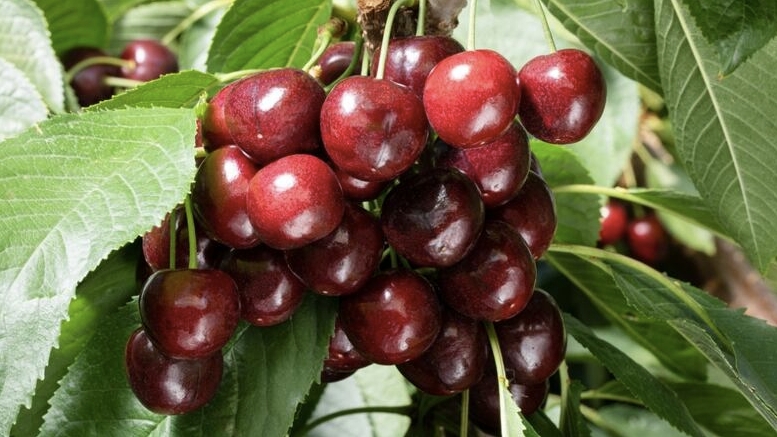Canadian Government Reinstates Cherry Patent in Major U.S. Court Battle Over Alleged Fruit Fraud
Subhadarshi Tripathy
3/25/20253 min read


A U.S. federal judge has reinstated Canada’s patent for a cherry developed in British Columbia, reviving a high-stakes legal battle over fruit identity fraud between the Canadian government and a prominent U.S. farmer.
At the centre of the case is the Staccato cherry, a late-ripening variety discovered by breeder W. David Lane at Agriculture and Agri-Food Canada’s Summerland Research and Development Centre in 1982. The fruit ripens weeks later than other varieties—offering growers a crucial market edge—and has since become one of the most widely planted cherry types in B.C.
But for the last five years, the federal government has been in court alleging that Wenatchee, Wash., farmer Gordon Goodwin and his partners misappropriated the Staccato, renamed it “Glory,” and passed it off as their own—costing Canada millions in potential licensing and royalties.
This month, the District Court for the Eastern District of Washington reversed its own 2022 decision to invalidate the Staccato patent, ruling that the defendants had withheld key evidence from the court in earlier filings.
“A rare and significant ruling”
“This is not a decision that comes out very often—and certainly not with the level of commercial impact that it has,” said intellectual property lawyer Elizabeth Dipchand, who is not involved in the case.
The Canadian government and its commercialization partner Summerland Varieties Corporation (SVC) welcomed the ruling.
“The global tree fruit industry is built on trust,” said SVC General Manager Sean Beirnes. “We will have zero tolerance for those who cheat.”
Agriculture and Agri-Food Canada (AAFC) said the decision strengthens its ability to protect its innovations in the international market.
The Staccato vs. Glory dispute
AAFC says it legally provided Staccato trees to Van Well Nursery, a Washington-based fruit tree supplier, for testing and evaluation—under the condition that they not be reproduced or sold.
But in the years that followed, AAFC alleges that Van Well gave a Staccato tree to Goodwin, who then filed for and received a U.S. patent in 2012 for a new variety he called Glory. Goodwin claimed the trees came from a different Canadian variety called Sonata, but AAFC argues that a genetic analysis later confirmed the “Glory” cherries were in fact identical to Staccato.
The lawsuit says Monson Fruit Company, a major Washington state producer, used Goodwin’s budwood to plant hundreds of acres of the fruit and that Van Well sold thousands of trees falsely labelled as Glory.
AAFC accuses all three parties of violating plant breeder rights, misleading consumers, and undermining the credibility of Canadian agricultural science.
Evidence was “falsely represented,” judge rules
In 2022, U.S. District Judge Stanley Bastian threw out Canada’s claim, agreeing with the defendants that the patent was filed too late—after they had already begun selling the cherries commercially.
But in a reversal this month, Bastian ruled that the defendants misrepresented a key spreadsheet detailing cherry sales. They had submitted a redacted version showing sales of Glory cherries before the Canadian patent was filed—but excluded the first 10 rows, which revealed the sales were actually for Sonata, not Glory or Staccato.
“It would be manifestly unjust to excuse this behaviour,” wrote Bastian, calling it a “clear error” and reinstating Canada’s patent.
Legal fallout and industry shock
The reversal has caused shock among the defendants. Monson’s lawyer, Mark Walters, said they waived their right to a jury trial based on the original ruling and built their entire legal strategy around it.
“We were shocked,” said Walters. “We relied for two years on this.”
Monson has now filed a motion asking the judge to reconsider his decision.
“Vacating that ruling now… works a manifest injustice,” the motion reads.
Neither Goodwin nor Van Well Nursery responded to CBC’s request for comment.
A test case for fruit IP enforcement
The case is being watched closely across the fruit-growing world, where intellectual property rights for tree fruit varieties are becoming increasingly valuable as growers seek competitive advantages in global markets.
Sukhpaul Bal, president of the B.C. Cherry Association, said that Washington state’s industry dwarfs B.C.’s and that Canada relies heavily on late-season varieties like Staccato to compete.
“These later cherries are definitely the key advantage,” said Bal.
Experts say the court’s decision may set a new precedent for how international fruit breeding rights are respected—and what happens when they’re not.
“This case reminds everyone in the industry that patents and plant breeders’ rights are not just pieces of paper,” said Dipchand. “They have teeth.”
News
Stay updated with the latest BC news stories, subscribe to our newsletter today.
SUBSCRIBE
© 2025 Innovatory Labs Inc.. All rights reserved.
LINKS
